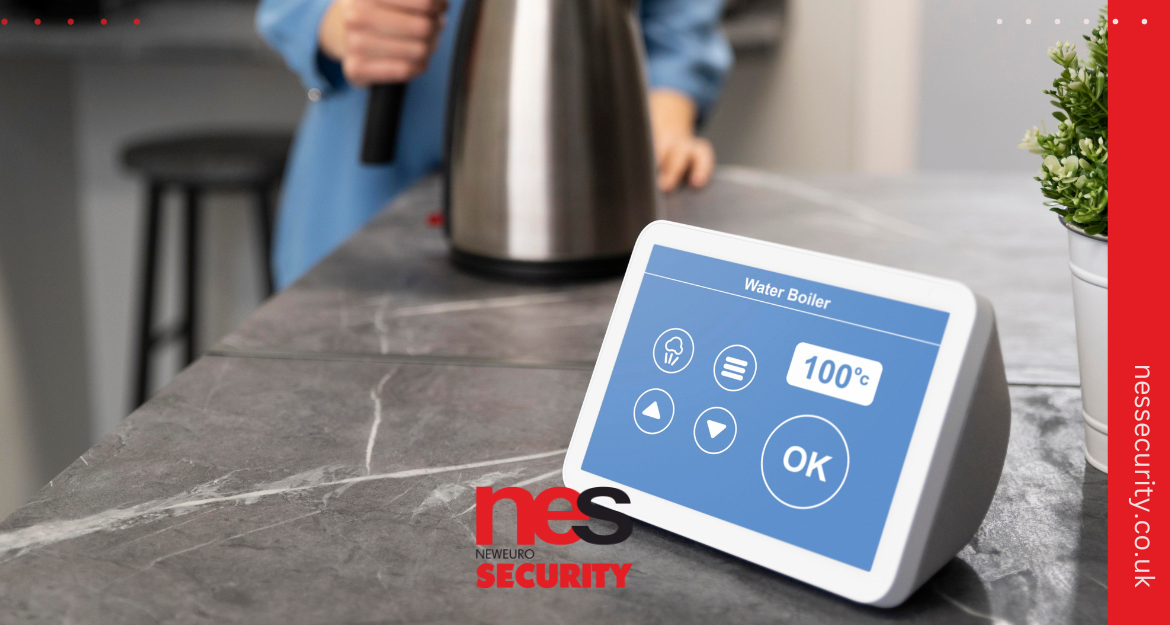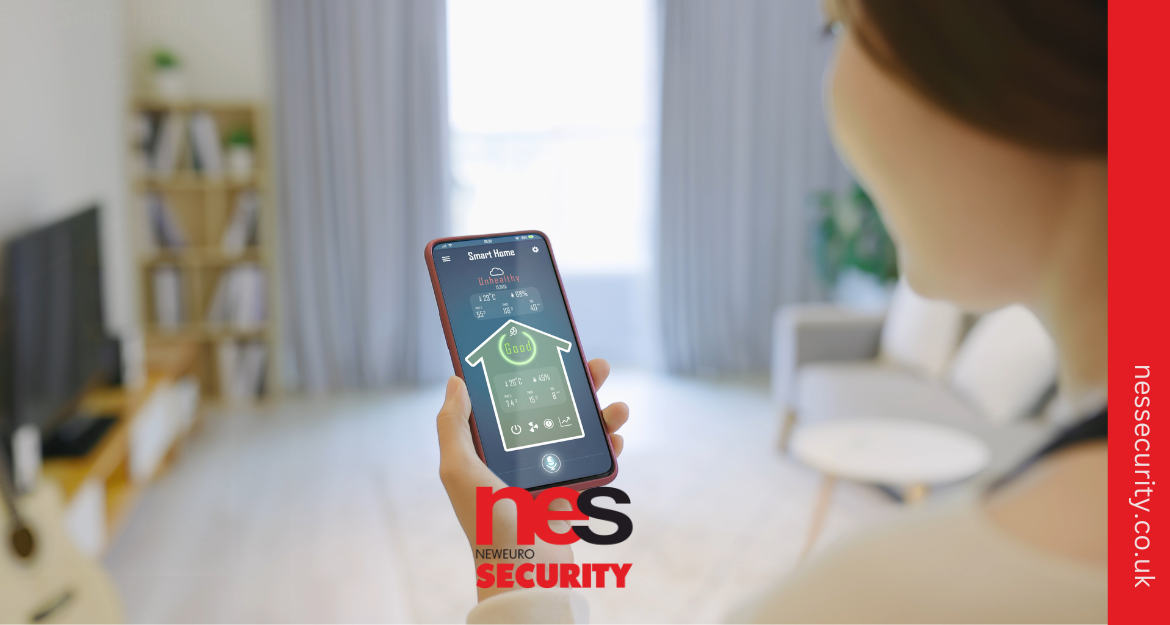Imagine a home where every aspect is seamlessly connected, where your living space anticipates your needs and adapts to your preferences. Welcome to the future of home automation, where technology intertwines with our daily lives in remarkable ways.
From voice-controlled assistants to advanced security measures and sustainable living solutions, the future of home automation is a promising landscape of innovation and convenience. In this article, we will explore the trends and innovations that are shaping the future of home automation, revolutionising the way we interact with and experience our living spaces.
The Evolution of Home Automation: From Convenience to Connectivity
Home automation has come a long way since its early days of convenience-focused features like automated lighting and thermostats. Today, it has evolved into a sophisticated ecosystem that connects various devices, systems, and services within our homes.
The future of home automation lies in creating a seamless and connected living experience, where different technologies work in harmony to enhance our comfort, convenience, and efficiency. From integrating security systems to controlling entertainment and energy management, the evolution of home automation promises a more integrated and cohesive living environment.

The Rise of Voice Control and AI Assistants in Home Automation
The rise of voice control and AI assistants has brought a new level of interactivity and convenience to home automation. Voice-activated devices like Amazon Alexa, Google Assistant, and Apple’s Siri have become integral parts of many households. They allow users to control various aspects of their homes, from adjusting lights and thermostats to managing entertainment systems and accessing information.
With advancements in natural language processing and machine learning, these AI assistants are becoming increasingly intelligent, learning our preferences and habits to provide a more personalised and seamless experience.
Smart Homes on the Edge: The Integration of Edge Computing
Edge computing is revolutionising the capabilities of smart homes by bringing computation and data storage closer to the devices themselves. With edge computing, smart devices can process and analyse data locally, reducing latency and enhancing real-time responsiveness. This integration enables faster decision-making, more reliable automation, and improved privacy and security. By leveraging the power of edge computing, smart homes can offer greater autonomy and efficiency while minimising dependence on cloud services.
Embracing the Internet of Things (IoT) in Home Automation
The Internet of Things (IoT) is a fundamental component of the future of home automation. IoT connects various devices, sensors, and systems within our homes, enabling them to communicate and share data.
This connectivity creates a unified ecosystem where devices work together seamlessly to automate processes and enhance our living experience. From smart thermostats that optimise energy usage to interconnected security systems that provide comprehensive protection, IoT brings a new level of intelligence and convenience to our homes.
Connected Living: The Role of 5G in Advancing Home Automation
The arrival of 5G technology is set to transform home automation by enabling faster and more reliable connectivity. With its high bandwidth, low latency, and ability to handle a massive number of connected devices, 5G will revolutionise the way smart homes operate. It will facilitate real-time communication between devices, enhance responsiveness, and open up possibilities for new applications and services. 5G connectivity will lay the foundation for a fully connected living environment, where smart homes seamlessly integrate with smart cities and the broader Internet of Things ecosystem.
Enhanced Security and Privacy Measures in Future Home Automation
As home automation becomes more pervasive, ensuring the security and privacy of our homes and data becomes paramount. Future home automation systems will incorporate enhanced security measures, such as robust encryption, two-factor authentication, and secure communication protocols.
Privacy features will be strengthened, with transparent data practices, user consent management, and increased control over data sharing. With these advancements, homeowners can enjoy the benefits of home automation while maintaining a high level of security and privacy.
Sustainable Living: Green Technologies in Home Automation
Sustainable living is a crucial aspect of the future of home automation. Green technologies will play a significant role in reducing our environmental impact and promoting energy efficiency. Smart homes will integrate renewable energy sources such as solar panels, enabling homeowners to generate clean energy and reduce their reliance on traditional power grids. Energy management systems will optimise energy usage, allowing homeowners to monitor and control energy consumption, leading to cost savings and a reduced carbon footprint.

Augmented Reality and Virtual Reality in Home Automation
Augmented reality (AR) and virtual reality (VR) have the potential to transform the way we interact with and experience our smart homes. AR can provide real-time information and overlay virtual elements onto our physical environment, allowing us to control and monitor smart devices with intuitive gestures. VR, on the other hand, can create immersive virtual environments where we can visualise and customise our smart homes before implementing any changes. These technologies will enable homeowners to have a more engaging and interactive relationship with their home automation systems.
The Role of Robotics and Automation in Future Smart Homes
Robotics and automation will play an increasingly significant role in future smart homes. Robots will assist with household chores, such as cleaning, gardening, and even cooking, freeing up our time and enhancing convenience.
Automation will extend beyond simple tasks, with the integration of machine learning algorithms that enable devices and systems to learn our preferences and adapt accordingly. This level of automation will create homes that proactively anticipate our needs, making our lives more comfortable and efficient.
Biometric Technology: Personalisation and Security in Home Automation
Biometric technology, such as fingerprint and facial recognition, will bring a new level of personalisation and security to home automation. By identifying individuals based on unique physiological characteristics, biometric systems can provide personalised experiences tailored to each household member. Biometric authentication will also enhance security, ensuring that only authorised individuals can access and control smart home devices and systems.
The Future of Home Automation: Challenges and Opportunities
While the future of home automation is full of promise, it also presents challenges that need to be addressed. Interoperability among different smart devices and systems remains a hurdle, as seamless integration is essential for a cohesive smart home ecosystem. Privacy and security concerns require robust measures to protect homeowners’ data and ensure their peace of mind.
Additionally, the affordability and accessibility of home automation technologies need to be addressed to ensure widespread adoption. Overcoming these challenges will unlock the full potential of home automation and pave the way for a more connected and intelligent living environment.
FAQs
Will home automation replace traditional manual controls?
Home automation is designed to enhance and simplify our lives, but it does not necessarily replace traditional controls. Manual controls will still be available for those who prefer them, providing flexibility and options for homeowners.
Will future home automation systems be compatible with existing devices?
Interoperability is a key focus for future home automation systems. Efforts are being made to ensure compatibility with existing devices, allowing homeowners to seamlessly integrate new technologies into their current smart home setups.
Final Thoughts
The future of home automation holds tremendous potential to transform our living spaces into intelligent, connected environments. With advancements in voice control, edge computing, IoT, 5G, and various other technologies, our homes will become more intuitive, efficient, and secure. From enhanced security and privacy measures to sustainable living solutions and personalised experiences, the future of home automation is an exciting realm of innovation and convenience.
When it comes to realising the future of home automation, Nes Security is your trusted partner. Nes Security specialises in providing tailored solutions that cater to your specific needs. From smart security systems to advanced automation and integration services, Nes Security has the expertise to help you create the smart home of your dreams. Their team of professionals will guide you through the process, from initial consultation to seamless installation, ensuring that your home automation journey is effortless and rewarding.
Experience the future of smart living with Nes Security and unlock the full potential of home automation.


